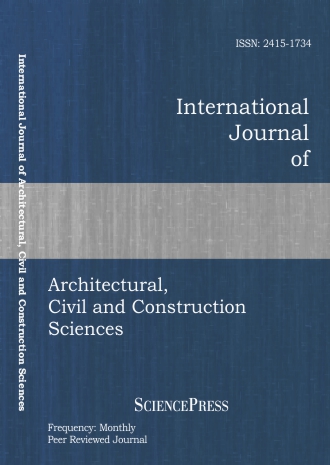
Scholarly
Volume:13, Issue: 12, 2019 Page No: 741 - 744
International Journal of Architectural, Civil and Construction Sciences
ISSN: 2415-1734
75 Downloads
Studying the Effect of Hydrocarbon Solutions on the Properties of Epoxy Polymer Concrete
The destruction effect of hydrocarbon solutions on concrete besides its high permeability have led researchers to try to improve the performance of concrete exposed to these solutions, hence improving the durability and usability of oil concrete structures. Recently, polymer concrete is considered one of the most important types of concrete, and its behavior after exposure to oil products is still unknown. In the present work, an experimental study has been carried out, in which the prepared epoxy polymer concrete immersed in different types of hydrocarbon exposure solutions (gasoline, kerosene, and gas oil) for 120 days and compared with the reference concrete left in the air. The results for outdoor specimens indicate that the mechanical properties are increased after 120 days, but the specimens that were immersed in gasoline, kerosene, and gas oil for the same period show a reduction in compressive strength by -21%, -27% and -23%, whereas in splitting tensile strength by -19%, -24% and -20%, respectively. The reductions in ultrasonic pulse velocity for cubic specimens are -17%, -22% and -19% and in cylindrical specimens are -20%, -25% and -22%, respectively.
Authors:
References:
[1] Y. Ohama, “Principle of Latex-Modification and Some Typical Properties of Latex-Modification Mortars and Concretes“ACI Materials Journal, vol.84, No.45, Nov.-Dec. 1987, pp.511–518.